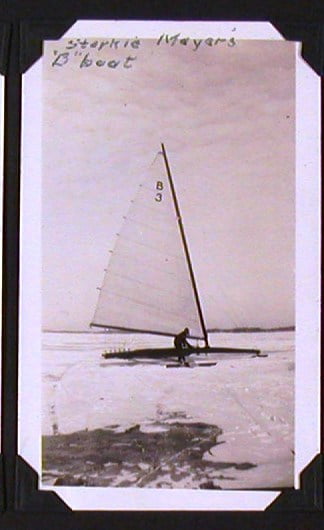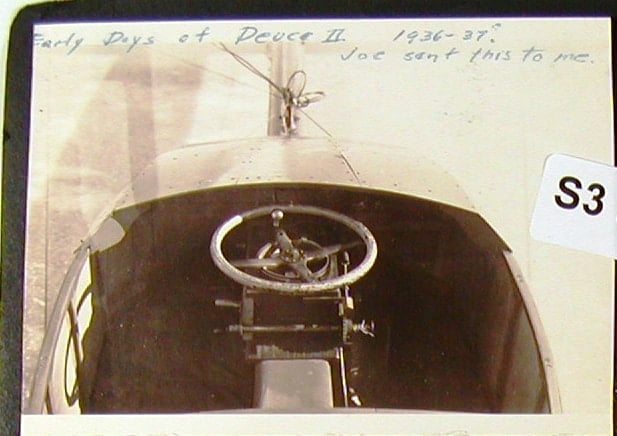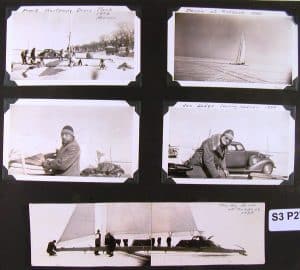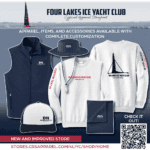Meade Gougeon’s Essential “Evolution of Modern Sailboat Design”

“Others quickly picked up the bow-steering design, and a few large bow-steerers were built…A Class B boat (250 square feet of sail) was built by Starke Meyer of Milwaukee and he ran away from everything else on the lakes”. Photo from the Carl Bernard Scrapbook Collection.
While researching last week’s Throw Back Thursday Gar Wood regatta post, I discovered a book that wasn’t on my radar or in my library, Meade Gougeon’s “Evolution of Modern Sailboat Design” written with co-author Ty Knoy. The stern-steerer iceboat on the cover hinted this was not a typical book about soft water sailboats with an obligatory paragraph about iceboats. Meade masterfully combined the story of iceboat design, mechanics, and history as he explained why some boats are faster than others. If you collect books about iceboating, this is an essential volume and available on Amazon.
Meade’s Bigger Picture Thinking:
- “Many of the refinements in sails and rigging that have been developed since World War I originated on iceboats.”
- “The first bow-steerer of any importance was built in 1931 by the Joy brothers, sailmakers in Milwaukee.” …”the Joy brothers and Walter Beauvais (of Williams Bay, WI) who came up with the machine (BEAU SKEETER) that retired the big boats forever…It went on the ice in Lake Geneva in 1933 and was an instant success.”
- Iceboaters were quick to take up the idea’s of Dr. Manfred Curry, a German sailor who came up with the idea of planing full length battens to curve into an airfoil. (An idea banned in most soft-water racing classes at the time of the book’s publication.) Iceboaters in the 1930s were using revolutionary ideas like rotating masts, wing masts, and full length battens while soft-water classes were outlawing advancements. The few softwater classes that allowed rotating masts (in 1976) were Midwestern scows, from the same part of the world where a good many iceboaters are also scow sailors in the summer.
- The aviator, Charles Lindbergh, (who spent a semester here the university in Madison and motored around Lake Mendota on an ice sled) “is said to have had a hand in the design of a very advanced rig” that was put on the Class A stern-steerer, DEUCE II, which was owned by Lindbergh’s cousin, Joseph Lodge of Detroit.

“On DEUCE II, with the help of Lindbergh, Lodge installed a rotating wing mast, believed to be the first ever used…DEUCE II was a hard luck boat, plagued by rigging failures, as Lodge challenged for the Stuart Cup and the Hearst International trophies in the 1930s.” Photo from the Carl Bernard Scrapbook Collection.



